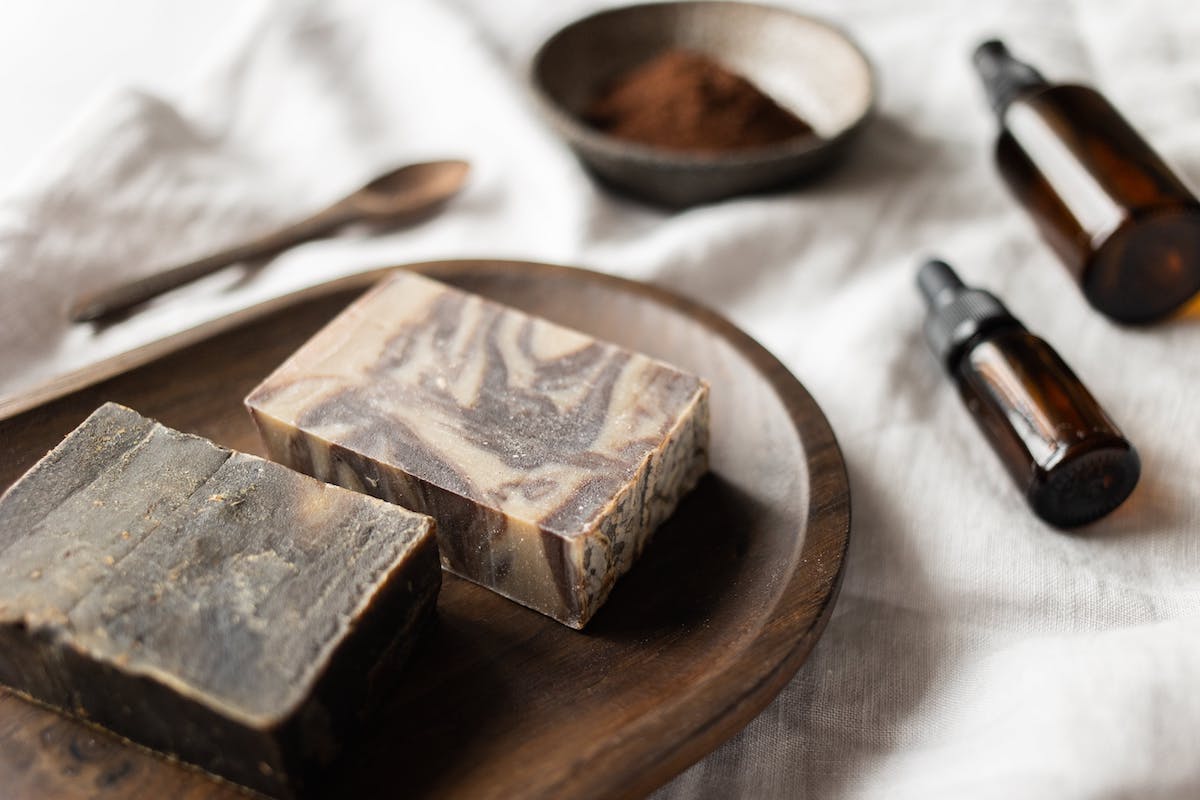
Essential oils have been having several moments in recent years. Lauded for everything from helping our homes smell heavenly to aiding in personal appearance, some oils are touted as “miracle cures” for hair loss and regrowth. Castor oil is often mentioned in hair growth products, including for men noticing receding hairlines. However, another oil is also mentioned among the ingredients, “guaranteed” to prevent and reverse hair loss.
First, there are no miracle cures or guarantees for hair loss prevention or reversal. There’s no such oil as an absolute “hair growth oil.” Genetics, age, and health are all factors out of our control. However, is there any validity to the idea that men might benefit from jojoba oil for hair strengthening and regrowth? TL;DR: The research is hairy. Let’s get into the weeds.

What is jojoba oil?
Jojoba (pronounced ho-ho-ba) oil comes from the Simmondsia chinensis plant, a native shrub in Arizona, California, and Mexico. Since Simmondsia chinensis thrives in warm, dry climates, you can also find the shrub in Argentina, Australia, and Egypt. Jojoba oil has a waxy texture and earthy, almost nutty, scent. One of the most popular uses for jojoba oil is in personal care products, including cosmetics and haircare products (including items for the mane on your head, plus facial hair).

Can jojoba oil prevent hair loss?
The old cliche is that “prevention is the best medicine.” Can you prevent hair loss, and is jojoba oil a tool to try? The truth is that there isn’t a hard-and-fast answer. Factors like genetics will play into if and when you lose hair (ditto for graying hair, by the way). However, that doesn’t mean using jojoba oil for hair loss prevention is based on woo-woo. The composition of jojoba oil is behind the hype the ingredient gets as a hair growth oil.
Jojoba oil is packed with nourishing vitamins and minerals, including:
- Vitamin C
- Vitamin E
- B vitamins
- Copper
- Zinc
Since jojoba oil is rich in vitamins and minerals, people believe the ingredient strengthens and moisturizes hair. Dry hair is more challenging to break off, so your mane remains full and thick.
Research supports the idea that jojoba oil helps keep hair well hydrated. As a bonus, the hydration may help to alleviate dandruff.
Because jojoba oil might help strengthen hair, manufacturers have put the ingredient in hair growth products. However, preventing hair loss and reversing that receding hairline are different. Little evidence supports the idea that jojoba oil can supercharge hair growth or reverse loss. In fact, some data points to the opposite. Research from 2014 even noted that people saw better results with Rogaine and peppermint oil.
If hair growth and loss reversal is the goal, you might want to save your money and skip jojoba oil. However, if you’re looking for strong, smooth hair with little to no dandruff, opting for a product with jojoba oil might be worth trying.

How to apply jojoba oil to hair
Ready to give jojoba oil a shot? Here’s how to apply jojoba oil to hair:
- Use products with jojoba oil. The easiest way to apply jojoba oil to hair is to use a product that already includes the ingredient. Follow the instructions on the bottle — simple as that.
- Add jojoba oil to products. Are you not interested in switching up shampoos and conditioners? A quick DIY fix can make jojoba oil an ingredient. Purchase a separate bottle of the oil and add a few drops with a syringe to your favorite haircare products. Start with about five drops and see how your scalp and hair react.
- Apply jojoba oil directly to the hair. Add a teaspoon or two of warm jojoba oil to the hair. The warmth will help the oil spread more quickly — remember; jojoba oil is waxy. Be sure to spread evenly throughout the strands for the best results.
In rare cases, people can have jojoba oil allergies. If you notice pain or irritation on the scalp, cease use and speak with a provider.

Summary
Miracle cures for hair loss and ways to supercharge hair growth are a dime a dozen in the personal care aisle. However, there are no miracles for manes (sorry). Different factors, like stress and genetics, will play into when you start balding or going gray. However, some products might slow the process. Jojoba oil is loaded with vitamins and minerals like zinc and Vitamin C that can help strengthen hair, giving you fuller locks (or a stylish beard). These ingredients are also nourishing and moisturizing, so they might nix flaking from dandruff or dryness. Strong hair is more complicated to break (and therefore lose). However, no substantial evidence supports the idea that jojoba oil will help you grow hair, including regrow lost hair. Your best bet is to speak with a barber or dermatologist about other hair growth products with more evidence so you spend your time and money wisely.
Editors' Recommendations
- Does beard growth oil work? What you should know
- The 11 best hair styling creams for men to get the perfect do
- What actually causes hair loss in men? Plus, the tips you need for thinning hair
- Hair loss treatment: Best options for men with thinning hair
- The 5 best body powders for men to help avoid embarrassing odors




